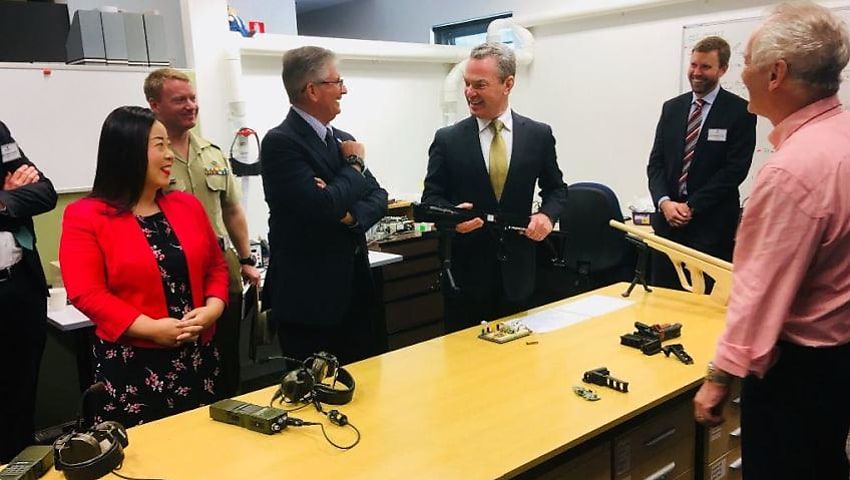A Canberra-based company will develop a wireless soldier control system for the Australian Defence Force (ADF), after securing funding from the Defence Innovation Hub.
Defence Industry Minister Christopher Pyne confirmed Kord Defence has been awarded an innovation contract worth $635,000 to develop the technology.
The system will use Bluetooth Low Energy technology that will connect with multiple electronic devices currently in use by the ADF.
Minister Pyne said this innovation could provide improved situational awareness for soldiers in combat situations, linking together devices used for communications, sensors and battlefield intelligence.
"Soldiers can focus on their surroundings during high-stress combat situations rather than trying to find buttons or operate equipment such as radios or sensors," the minister said.
"I am pleased to announce Kord Defence will receive funding to take this innovative technology to the next level."
ACT senator Zed Seselja said he was pleased to see a local ACT company leading the development of innovative technology for the ADF.
"This contract reflects the innovative technologies emerging from our local Canberra defence industry," Seselja said.
"What is especially pleasing to see is the work done by Kord Defence in the ACT is bringing significant economic benefits to our region."
The awarding of the contract comes just days after NSW company RingIR received $4.6 million from the Defence Innovation Hub to develop a counter-improvised explosive device (IED) system, which will use a sensitive laser spectrometry technique to locate and identify vapours exuded from explosives.
Various other areas of innovation and technology are being explored under Defence Innovation Hub contracts.
The third tranche of contracts under the Defence Innovation Hub were released in October, with the contracts totalling $5.9 million.
Queensland's Explosive Protective Equipment received a $242,000 contract to explore the integration of a Cobham Amulet Ground Penetrating Radar into an existing unmanned ground vehicle for detection of improvised explosive devices. Griffith University, also in Queensland, was awarded a $183,000 contract to explore the development of a portable device that enables real-time detection of airborne biological threats, such as fungi spores, viruses and bacteria.
WA's L3 Oceania received $2.9 million, the largest contract of the third tranche, to explore the development of an underwater acoustic sensor that could provide significant benefits within the ADF maritime domain.
NSW's University of Newcastle was given $2.2 million to explore the development of enhanced resilience training for ADF personnel through a set of virtual reality-based training sessions involving controlled exposure to adverse environments.
And in Victoria, Agent Oriented Software received $378,000 to explore the concept of an autonomous teamed intelligent software agent capability resilient to cyber attacks.
Investments from the first tranche totalled $800,000 while the second tranche of investments came in at $12.3 million.
Industry, academic and research organisations can continue to submit proposals through the Defence Innovation Portal at www.business.gov.au/cdic.



